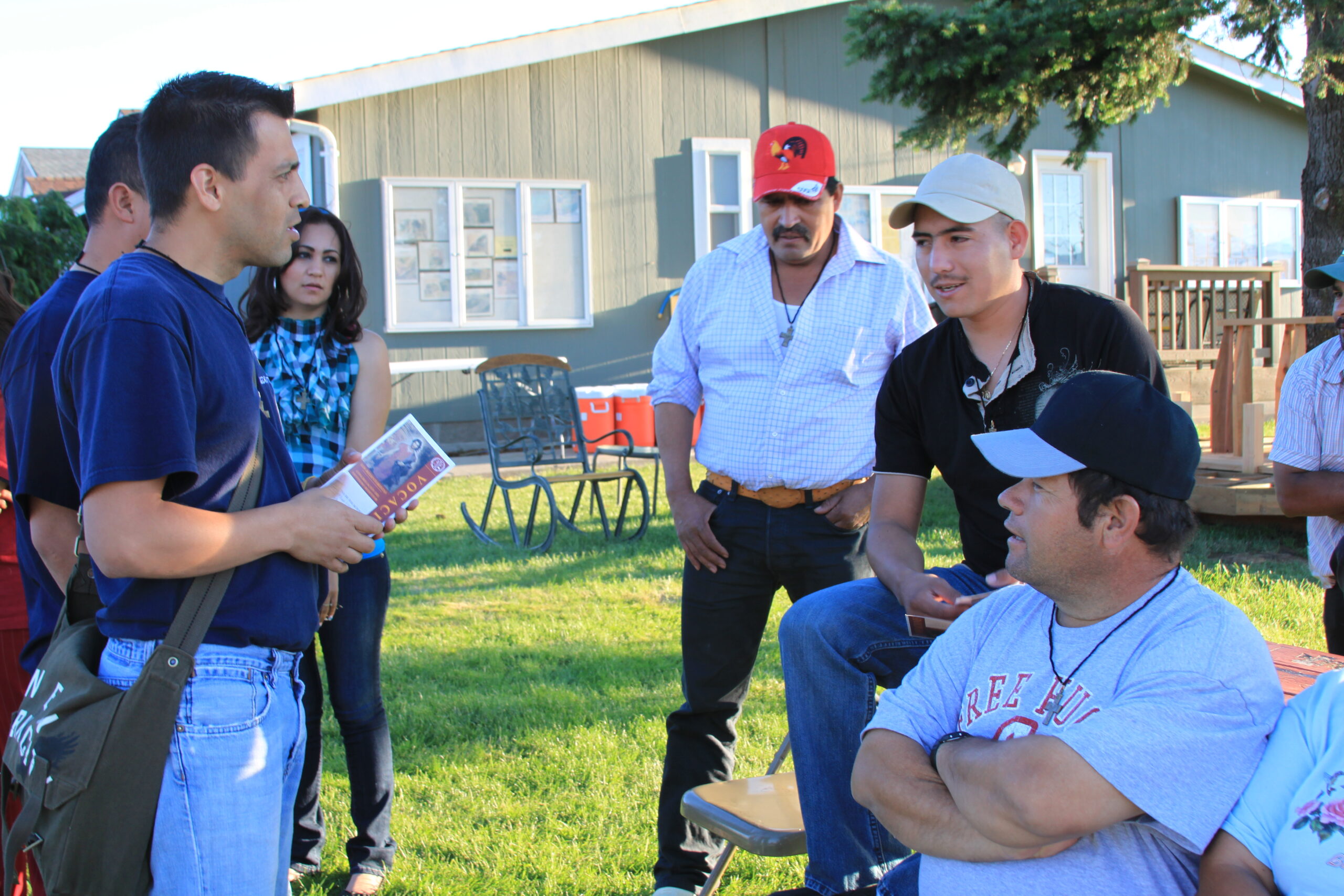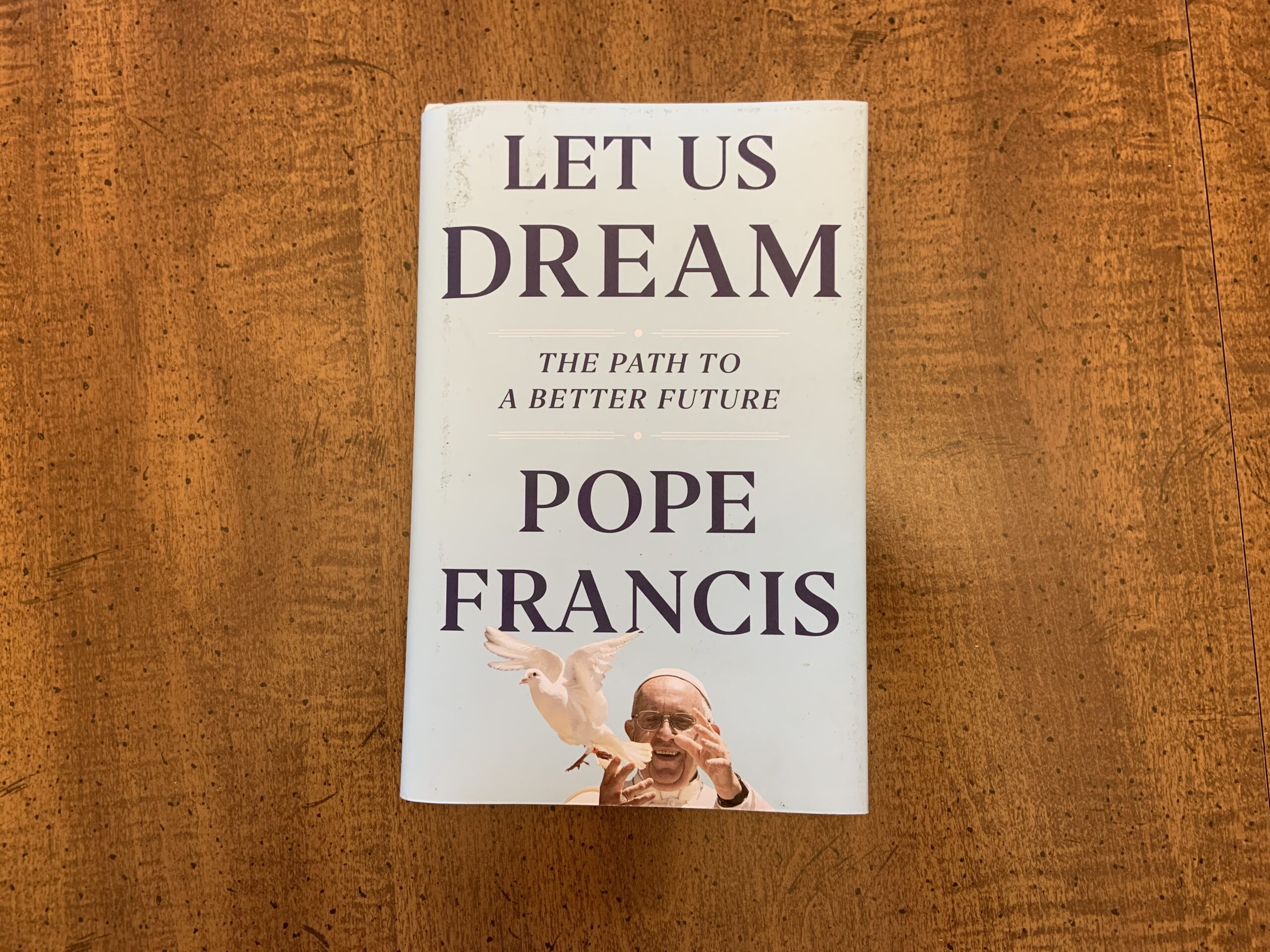Homily/Homilía for XXIII Sunday
“Love your neighbor as yourself.”
(To be evangelized is a lifetime pursuit for people of faith. The Sunday homily is an important part of our taking time for spiritual reflection. It is not my custom to read a homily, but I hope to use my Saturday blog not so much as a homily as preparation of the Word, for migrants and volunteers in migrant ministry.)
When Jesus speaks of correcting a brother, he says speak with him alone. The correction is calm, measured and seeking a good and healthy response. It is done in love. The wisdom of Jesus comes by seeking the good of the other first, the good of the brother. The goal of correction is that the brother experiences the love of the law.
Paul says to the Romans: “Owe nothing to anyone, except to love one another; for the one who loves another has fulfilled the law.” He says that we know the commandments, and we follow them, but know that if we love our neighbor, we do not need to worry about the law. “Love your neighbor as yourself.”
Jesus said at another time, “My yoke is easy, and my burden light.” In times of distress, life does not appear easy or light. COVID19 disrupts our lives in ways no previous disaster has affected us. We live in uncertainty. The supports for our spiritual journey have changed. We remember that “when two or three gather” Jesus is present, but now, even when we gather with two or three, we do so with caution. We are anxious. We make no long-term plans. When we try to do the normal activities of life, we face obstacles. Family celebrations, ordinary recreation, religious practices, school and so many more gatherings in our lives are changed. Angry voices and a coming election of leaders shatter our world, including our spiritual foundations.
The crises around us can be a time of awakening. An awakening comes from “evangelization”. Over fifty years ago, the Second Vatican Council called for a “new evangelization.” In 1976, Pope Paul VI wrote “Evangelii Nuntiandi” saying that “witness (is the) explicit proclamation” of the Word. Evangelization is more than catechesis. He says, “Modern man listens more willingly to witnesses than to teachers, and if he does listen to teachers, it is because they are witnesses.”
An explicit call for a “new evangelization” that approaches the challenges of today, comes from Pope John Paul II when he spoke in 1983 in Haiti at the Conference of Latin American Bishops. He said, we need a “new evangelization, new in its ardor, its methods and expression.” Our responses over the past thirty-seven years have focused on academic pursuits of doctrine, Scripture, law and liturgy. Retreats and Movements, such as Cursillo, the Charismatic Renewal and others motivate personal growth in the faith. Yet, pastoral care for the poor has mostly been relegated to giving physical aid but ignoring spiritual care for the poor. Pope Francis says that we fail to offer to the poor “his word, the celebration of the sacraments and a journey of growth and maturity in the faith.” (EG 200)
The most frequent questions that I hear about migrant ministry begin with, “What do your do for migrants?” I fear that my response may appear unsatisfying to the person asking the questions. I can speak about many things that migrant ministers can do in the work of evangelization, but nothing can take the place of accompanying the migrant. Walking with the migrant is the mission. It means simply loving them.
The tools of offering spiritual care for the poor are listening, respecting and giving honor to the person needing attention. We are the witnesses of the commandment Paul gave to the Romans, “Love your neighbor as yourself”
“Amarás a tu prójimo como a ti mismo”
(Ser evangelizado es una búsqueda de por vida para las personas de fe. La homilía dominical es una parte importante de nuestro tiempo para la reflexión espiritual. No es mi costumbre leer una homilía, pero espero usar mi blog de los sábados, no tanto como homilía como preparación de la Palabra de Dios para los migrantes y voluntarios en el ministerio de migrantes).
Cuando Jesús habla de corregir a un hermano, dice que hable con él a solas. La corrección es tranquila, mesurada y buscando una respuesta buena y sana. Está hecho con amor. La sabiduría de Jesús viene al buscar primero el bien del otro, el bien del hermano. El objetivo de la corrección es que el hermano experimente el amor de la ley.
Pablo dice a los Romanos: “No tengan con nadie otra deuda que la ley del amor mutuo, porque el que ama al prójimo, ha cumplido ya toda la ley.” Él dice que conocemos los mandamientos y los seguimos, pero sabemos que si amamos a nuestro prójimo, no tenemos que preocuparnos por la ley. “Amarás a tu prójimo como a ti mismo.”
Jesús dijo en otro momento: “Mi yugo es suave, y mi carga ligera”. En tiempos de angustia, la vida no parece suave ni ligera. COVID19 interrumpe nuestras vidas de una manera que ningún desastre previo nos ha afectado. Vivimos en la incertidumbre. Los apoyos para nuestro viaje espiritual han cambiado. Recordamos que “cuando se reúnen dos o tres” Jesús está presente, pero ahora, incluso cuando nos reunimos con dos o tres, lo hacemos con precaución. Estamos ansiosos. No hacemos planes a largo plazo. Cuando intentamos realizar las actividades normales de la vida, enfrentamos obstáculos. Las celebraciones familiares, la recreación ordinaria, las prácticas religiosas, la escuela y muchas más reuniones en nuestras vidas han cambiado. Las voces enojadas y la próxima elección de líderes destrozan nuestro mundo, incluidos nuestros cimientos espirituales.
Las crisis que nos rodean pueden ser un momento de despertar. Un despertar viene de la “evangelización”. Hace más de cincuenta años, el Concilio Vaticano II pidió una “nueva evangelización”. En 1976, el Papa Pablo VI escribió “Evangelii Nuntiandi” diciendo que “el testimonio es la proclamación explícita” de la Palabra. La evangelización es más que catequesis. Dice: “El hombre moderno escucha con más gusto a los testigos que a los maestros, y si escucha a los maestros es porque son testigos”.
Un llamado explícito a una “nueva evangelización” que se acerque a los desafíos de hoy, proviene del Papa Juan Pablo II cuando habló en 1983 en Haití en la Conferencia de Obispos Latinoamericanos. Dijo, necesitamos una “nueva evangelización, nueva en su ardor, en sus métodos y en su expresión”. Nuestras respuestas durante los últimos treinta y siete años se han centrado en la búsqueda académica de doctrina, Escritura, derecho y liturgia. Retiros y Movimientos, como Cursillo, Renovación Carismática y otros motivan el crecimiento personal en la fe. Sin embargo, el cuidado pastoral de los pobres se ha relegado principalmente a brindar ayuda física, pero ignorando el cuidado espiritual de los pobres. El Papa Francisco dice que no ofrecemos a los pobres “su palabra, la celebración de los sacramentos y un camino de crecimiento y madurez en la fe”. (EG 200)
Las preguntas más frecuentes que escucho sobre el ministerio migrante comienzan con “¿Qué haces por los migrantes?” Temo que mi respuesta pueda parecer insatisfactoria para la persona que hace las preguntas. Puedo hablar de muchas cosas que los ministros migrantes pueden hacer en la obra de evangelización, pero nada puede reemplazar el acompañamiento del migrante. Caminar con el migrante es la misión. Significa simplemente amarlos.
Las herramientas para ofrecer cuidado espiritual a los pobres son escuchar, respetar y honrar a la persona que necesita atención. Somos los testigos del mandamiento que Pablo dio a los romanos: “Ama a tu prójimo como a ti mismo”.




